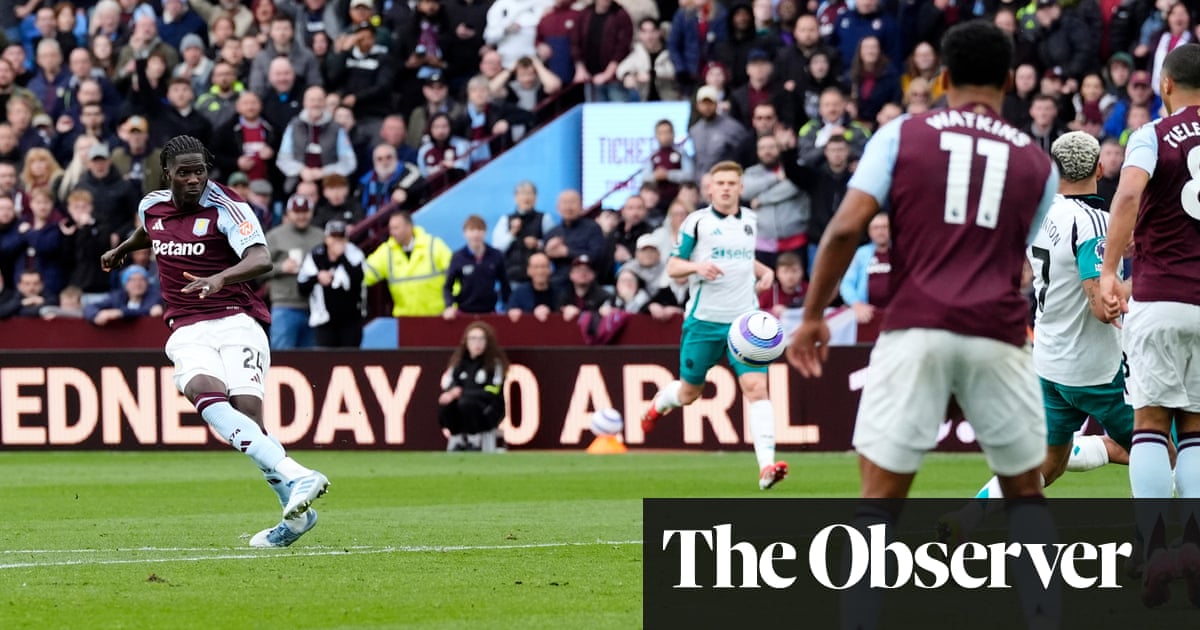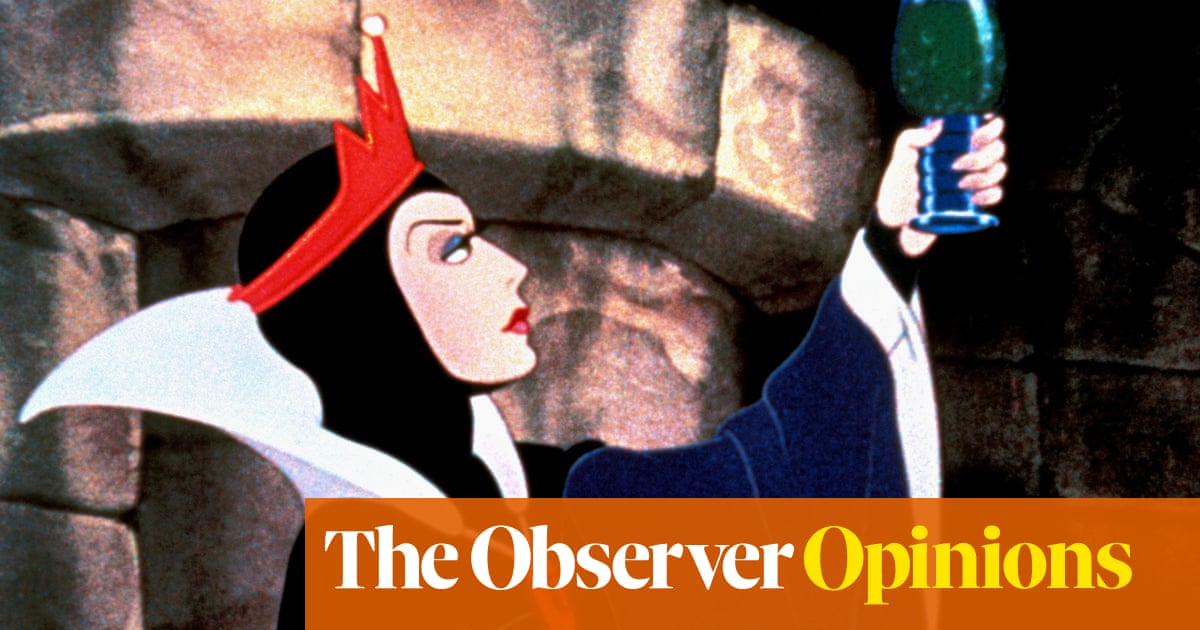Luke Humphries left this arena stunned and staggered, left it the victim of one of the greatest ambushes ever plotted on this stage, left it a former world champion. For an ailing and ageing Peter Wright, the only conceivable reality in which he could win this match existed in his own mind, and over 40 scintillating minutes he set about carving this vision into magnificent flesh.
In a way, it was a vision dreamed up days in advance, when Humphries was still the king of the Palace and Wright was simply the washed up world No 17, and the possibility of this game barely registered. But Wright knew what he was doing when he aimed a little barb at Humphries, predicting he would lose early in the tournament. “I’m one world title away from almost matching his career and I’m 25 years younger,” Humphries bit back in jest. But on some remote level, a seed had been planted.
And when battle arrived, Wright did not shrink. All the old tics and tricks came out: switching his darts as if they were clubs in a golf bag, refusing bull out-shots even when Humphries was on a finish, showing the world No 1 a magnificent disrespect. But the real target of Wright’s mind games was himself: a daring experiment in manifesting, through sheer will, the man he once was. All that remained was for his darts to cash the cheques his hubris had written for him.
At which point, something strange happened. The Palace crowd, often indifferent to Wright in the past, swung firmly behind him. Wright responded with darts of the finest vintage: an average of 101, backed by a 70% rate on the doubles, backed by an impeccable sense of timing and discipline and nerve and spirit. A run of 17 consecutive legs on throw was snapped only by the crucial break of throw that earned Wright a 3-1 lead in sets: an incredible 12-darter at the most important juncture of the match.
Because here’s the thing. Humphries didn’t throw badly at all. He averaged 99 and hit 56% of his doubles. He was excellent, verging world class. But set play is about mastering the moments as well as the processes, and here perhaps the prickly pre-match preamble played a little percussion on his nerves.
Too much chaos seems to throw Humphries. Dimitri Van den Bergh at the UK Open. Luke Littler in the Premier League final. Playing in the Grand Slam while his young son was unwell at home. Of course he can still throw brilliant darts when he’s angry, when he’s rattled, when he’s distracted, when he’s tired. But he is at his crystalline best when he keeps things simple.

What he does not lack, what he has never lacked, is bottle. He kept nailing crucial doubles on his third dart. Kept holding his throw, maintaining his impeccable standard, waited for Wright to blink. But Wright did not blink. He forced a decider in set four with an 89 checkout. Opened 180-121-140 in the decider and cleaned it up in 12 legs. Humphries averaged 108 in that set, and lost it.
The end came quickly after that. Wright’s wizened face crumpled into sobs, the facade finally melting. There were fist clasps and hugs from Humphries, a man who for the last 12 months has carried his champion status with real class and skill, and who will absolutely be back. He may even have learned a thing or two from the old man here.
Afterwards, Wright was asked how he had done it. “Because I’m a double world champion,” he answered, still hoarse from the festive cold that has reduced him to a whisper for most of the last week. “That’s why. I’m not too old. You’ve only got to play well for three weeks in the whole year. These three weeks are all that matters.” He’ll play Stephen Bunting or Luke Woodhouse next.
after newsletter promotion
How do I sign up for sport breaking news alerts?
Show- Download the Guardian app from the iOS App Store on iPhone or the Google Play store on Android by searching for 'The Guardian'.
- If you already have the Guardian app, make sure you’re on the most recent version.
- In the Guardian app, tap the Menu button at the bottom right, then go to Settings (the gear icon), then Notifications.
- Turn on sport notifications.
Wright was not the only player banking on that little nugget of yuletide wisdom. Gerwyn Price is another former champion who at times seems to be physically willing himself into being the player he used to be. He beat his fellow Welsh wizard Jonny Clayton 4-2 with a little fist pump, a mini-roar and just the slightest well of doubt over his ability to last the distance after a flawed but resilient performance.
When it’s good, it’s irresistible. At one point in the second set, he was averaging 111. That he finished with an average of 92 tells you how alarmingly he dipped after that point, and a more ruthless opponent than the gently listing Clayton would probably have done him here. Instead he’s a quarter-finalist, a slowly gathering storm, a reminder that on this stage, you’re never done until you’re done.

.png) 3 months ago
30
3 months ago
30













































